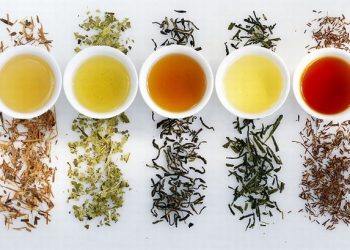Anxiety can be a disastrous visitor that comes crashing our confidence, mental health and mental peace in a snap!
Your body’s natural reaction to stress is anxiety. It’s a sense of dread or foreboding for what’s to come. Most people are afraid and anxious now mellowing on what to expect from the pandemic, job opportunities being ripped away and businesses failing to bankruptcy.

If anxiety isn’t handled, it can just get worse. Anxiety is the most prevalent form of mental illness, affecting people of all ages currently.
Studies show that, women are more likely to be diagnosed with anxiety disorders, compared to men according to American Psychiatric Association.
During the lockdown phase, being stuck at home unable to venture out freely could be a distressing phenomenon for many. Don’t we all feel anxious at times now, for unseemly reasons? This third lockdown imposed has surely taken a huge toll on our mental health.

Common symptoms of anxiety attacks from all of these overflow of emotions and thoughts that keep pounding on your head is that you start developing severe headache, with a wave of sheer fear washed through you.
You feel as if you’re losing control or going insane. Some also feel nauseous with palpitations or chest pain and feel as though they’re about to pass out. You can’t have proper sleep at night, often disturbed by wild dreams and thoughts leaving you distressed the next day.
Thus, staying at home, nourish yourself with the right food and supplement to keep your mental state sane from the melodrama that conspires around us daily.
Bottom line, food indeed plays a significant role in keeping our mental health in check!
So here are a few vitamins, health expert; Dan Murray Serter, Mental Health Advocate and Founder of Heights recommend that could help tone down your stress level, keeping your anxiety level at bay:
Vitamin B Complex
Vitamin B plays a huge role benefiting to reduce anxiety and improve your mood. A study by the Journal of Functional Foods found that people who consume vitamin B rich food like broccoli, black beans and prawns experienced a good improvement in anxiety and stress levels.

All eight B vitamins are found in the B complex vitamin family: B1 (thiamine), B2 (riboflavin), B3 (niacin), B5 (pantothenic acid), B6 (pyridoxine), B7 (biotin), B8 (inositol), B9 (folic acid), and B12 (cobalamin) (cobalamin).
While each of these vitamins has a unique impact on the body, there is evidence that taking a vitamin B complex multivitamin can help to relieve anxiety.
Vitamin D
In a study on vitamin D and anxiety disorders, researchers discovered that age-matched patients with anxiety disorders had lower levels of calcidiol, a vitamin D substance contained in the body.
As a result, it’s likely that a vitamin D deficiency is linked to social anxiety. Taking Vitamin D supplements or food rich in Vitamin D has also proven to improve depression in certain people.

Salmon, tuna, beef liver, cheese, and egg yolks all contain small amounts of vitamin D. Most breakfast cereals, as well as some orange juice, dairy products, and soy milk, are high in vitamin D. A ricotta and yoghurt parfait, frittatas, breakfast casseroles, and spiced hot chocolate are some vitamin D-rich recipes to try.
Zinc
Zinc plays a key role in regulating the brain and body’s reaction to stress at every stage. Our brains contain the highest amount of zinc in the body, especially in the hippocampus, a part of the brain. Depression, ADHD, learning and memory problems, seizures, aggression, and abuse are all signs of zinc deficiency.

Zinc is an important mineral that may be deficient in today’s refined and strict vegetarian diets, as meat, poultry, and oysters are the primary sources. So if you’re a vegetarian please supplement yourself orally with zinc tablets found in the pharmacies.
Zinc supplements will help you sleep better at night. It’s a great and healthy sleep aid, as well as a soothing, antidepressant, cause it has shown to improve the vividness of dreams in order to help to regulate sleep.
Good sleep equates to good rest, good rest results in better mental health.
Magnesium
Magnesium is becoming more and more popular as a sleep aid, it is another vitamin essential in bringing rest and sleep to our brain. Magnesium’s relation to sleep is largely due to its regulatory functions. Magnesium controls melatonin production in addition to regulating the phone lines in your brain known as neurotransmitters.

Melatonin is a sleep-inducing hormone that stimulates the parasympathetic nervous system, also known as the “rest and digest system.” That’s the process that comes in once you’ve been stressed and assists you in calming down. As an effect, magnesium can help one relax and sleep better, which may help with anxiety symptoms.
Try incorporating food that is rich with green leaves like spinach, Bak Choy, or even a bit of dark chocolate that could help elevate the magnesium level in the body.
Anxiety is a powerful emotion that can be crippling at times. It can cause you to abandon activities that you love and may even make simple daily chores seem like a hassle, for example getting out of bed, cooking, completing your work from home, or even withelding you from meeting people in extreme cases.
If your anxiety attack persists and you find it slowly suffocating your mental health, do get professional help ASAP before it worsens!










